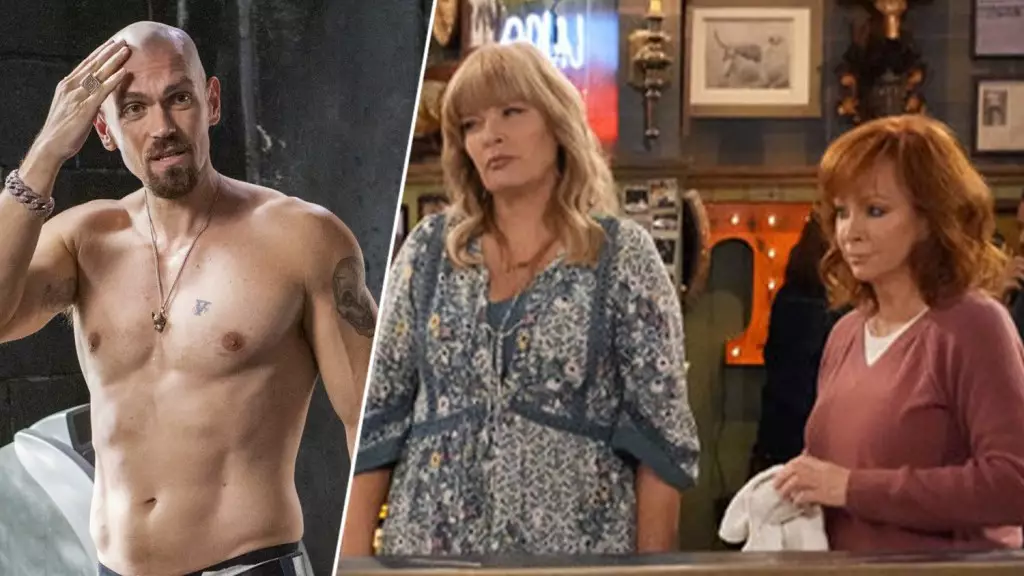In the world of television comedy, few dynamics strike as iconic a chord as that of a beloved cast reuniting after years apart. Reba McEntire, Melissa Peterman, and Steve Howey exemplify this phenomenon as they come together once more for an episode of “Happy’s Place.” Their journey began over two decades ago with the popular sitcom “Reba,” where they formed a familial bond that extended beyond the screen. This reunion not only serves as a nostalgic trip down memory lane but also highlights the evolution of their careers and the ever-changing landscape of television comedy.
The emotional ties shared by McEntire and Peterman with Howey took an unexpected turn when they recalled the shock of his nude scene in the 2011 premiere of “Shameless.” Both women humorously expressed their astonishment during an interview, recounting their workday discussions that followed the shocking reveal. McEntire’s reaction encapsulates the innocence and surprise of their past relationship as colleagues, “Did you see Steve last night? Yes, yes I did. Oh! Oh my gosh!” Such candid conversations not only humanize the stars but also remind audiences how intertwined personal and professional lives can become within the realm of television.
Peterman’s candid comment about feeling the need for a “warning” before witnessing such an intimate depiction resonates with audiences who have their own screensavers of actors whose journeys they followed closely. “You’re like our brother,” she said, expressing the familial connection they established while filming “Reba.” Her willingness to later watch the series showcases not only her professionalism but also a fondness for Howey’s talent.
Growth Through Humor
The camaraderie among these actors is palpable, and the humor underlying their experiences reflects their resilience in a demanding industry. Howey, joking about his decision to work out more due to the nature of his role on “Shameless”, adds levity to the conversation while painting a picture of an actor unafraid to embrace his on-screen vulnerability. His self-awareness regarding the evolving depiction of masculinity in comedy is refreshing and indicative of a broader shift within the genre.
As the trio prepares to entertain audiences once more, the excitement surrounding Howey’s guest appearance in “Happy’s Place” raises the question of what fans can expect in terms of comedic styling and dynamics. With Peterman playfully prompting Howey to shed his shirt, the banter emphasizes the continuing integration of humor and chemistry—elements essential to both their past and present work.
In “Happy’s Place,” McEntire steps into the role of Bobbie, an ambitious woman who inherits a restaurant and unexpectedly finds herself navigating the complexities of family life with a newfound half-sister. This premise not only reflects familial ties reminiscent of their past work together but also mirrors modern challenges and the nuances of sibling relationships.
As the landscape of comedy continues to evolve, shows like “Happy’s Place” stay relevant by addressing contemporary issues while maintaining the core themes of love, acceptance, and, ultimately, humor. McEntire, Peterman, and Howey’s reunion exemplifies the power of comedic storytelling, rooted in their shared experiences and growth. This journey of laughter, intertwined with surprise, leads them into a new chapter—one that honors the past while looking forward to the future.
